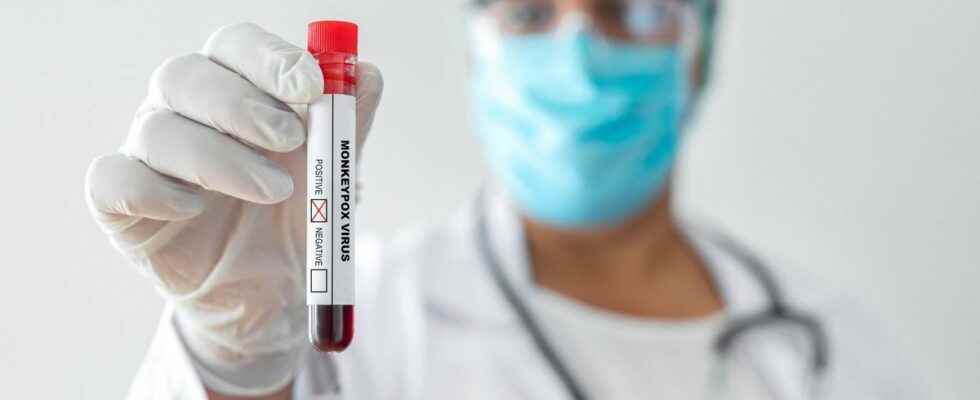Posted 1 hour ago,
Reading 2 mins.
in collaboration with
Dr Gérald Kierzek (Medical Director of Doctissimo)
Over 100 cases of monkeypox have been reported in nearly 20 Western countries. Faced with contamination, the question arises: should we vaccinate against this contagious but often benign disease? Elements of response with Doctor Gérald Kierzek, emergency doctor and medical director of Doctissimo.
Monkey pox is on the rise in the world and worries the authorities. According to Public Health France, at least 5 cases of monkeypox have been confirmed in France. Across the Atlantic, the American health authorities have expressed their desire to vaccinate “caregivers and contact cases at risk of developing a serious form”. What vaccination strategy should be implemented in France?
Monkey pox: “no more serious than chickenpox”
“Monkey pox is not smallpox”warns Doctor Gérald Kierzek.
Eradicated in the 1970s, smallpox is no more. Vaccination against this disease was officially discontinued in 1979 in France. Until then, French children had to be vaccinated against this pathology. Be careful not to confuse monkeypox with smallpox! They have very little in common.
“Monkey pox is called smallpox because the skin symptoms are similar but it is no more serious than chickenpox. You don’t have to panic”reassures Dr. Kierzek.
“The smallpox vaccine happens to be cross-effective, i.e. it would be 85% effective against monkeypox, especially the third generation vaccine”explains Dr Gérald Kierzek.
The High Authority for Health published a report on May 24 with a recommendation concerning monkey pox: it recommends the implementation of a reactive vaccination strategy, which consists of vaccinating around a confirmed case. Adults at risk, contact cases and health professionals are concerned by vaccination.
It must be carried out only with the third generation vaccine, ideally administered within 4 days after contact and at most 14 days later. The schedule is two doses (or three doses in immunocompromised subjects), spaced 28 days apart.
For Doctor Gérald Kierzek, it is necessary to vaccinate health professionals and people at risk in pre-exposure to monkeypox and contact cases in post-exposure. “Vaccination for contact cases is a good thing if there are risk factors”he says.
No self-medication with antivirals
There are other ways to treat monkeypox, including the administration of effective antivirals once the disease has been declared. “They should not be taken without a prescription because they have significant renal toxicity and there would be strategic stocks if necessary”warns Dr. Kierzek.
What about isolation? As soon as the disease breaks out, you must isolate yourself for 21 days, or 3 weeks, although the incubation period is generally 6 to 16 days, according to the WHO.
